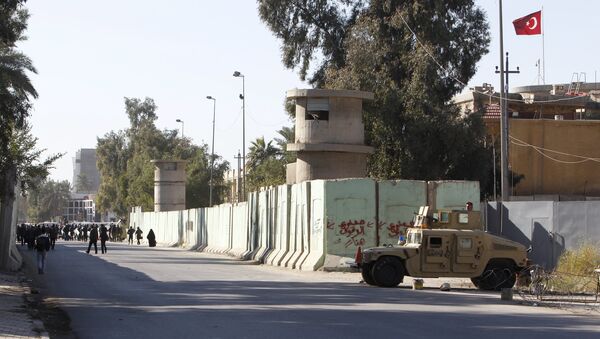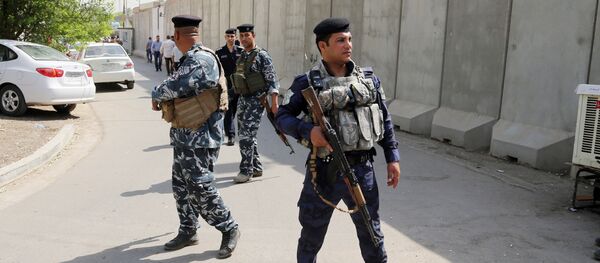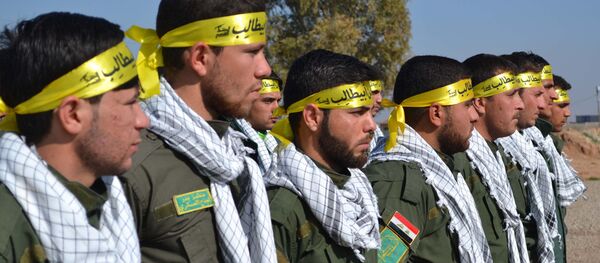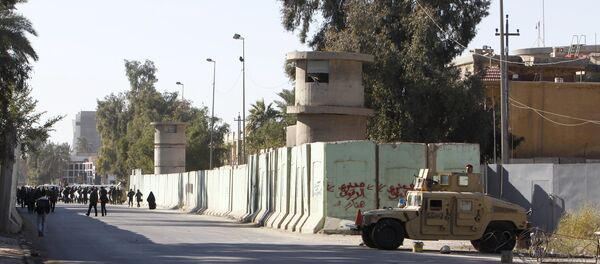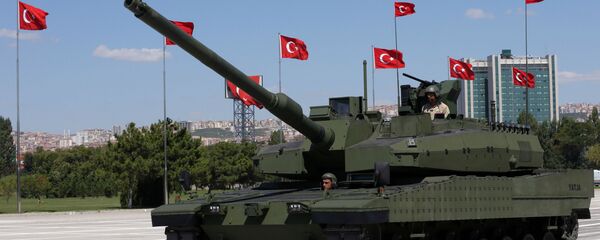WASHINGTON (Sputnik) — Last week, Turkey deployed troops to a camp in Mosul in northern Iraq. Baghdad condemned the move as a violation of sovereignty and asked NATO to intervene. It also set a 48-hour deadline to withdraw, which has since expired.
"These events have illustrated the Iraqi policy shift of favoring a stronger Russian-Iranian alliance," Institute for Gulf Affairs Policy Analyst Adam Whitcomb told Sputnik on Wednesday. "Iraq has already joined a coalition of information-sharing with Russia and Iran."
Whitcomb pointed out that the Badr Organization, a Shiite, Iranian-influenced militia already boasts a political party within Iraq’s Parliament.
"In the face of inaction or inconsiderate action from the United States the Iraqi government would rather place its confidence in a coalition that has shown much more commitment in defeating its regional threats from Daesh [Islamic State]," he explained.
However, Whitcomb warned that the United States would not sit back passively and allow the government in Baghdad to dictate terms of departure to Washington.
"The United States will not relinquish its contract so easily with the Iraqi government," he predicted.
Washington would likely agree to some revisions of the pact to maintain its current relationship as much as it can, Whitcomb conceded.
"However, these events do illustrate how Iraq’s favor is gradually slipping further and further away from the United States and toward its eastern neighbors," he insisted.
The Iraqi parliamentary committee’s statement had exposed the collapse of US ambitions to reshape Iraq since the 2003 war, University of Copenhagen Professor Matthew Dal Santo told Sputnik.
"If Tehran does stand behind both the Defense Committee's call and Iraqi Prime Minister Haider Abadi's appeal for NATO to do more to restrain Turkey, then we have yet more evidence of how completely US policy in Iraq has failed since 2003," he pointed out.
Successive US administrations, Dal Santo noted, had sought to fashion Iraq into a compliant satellite.
However, "Far from creating a reliable ally, the United States has handed Iraq to the country that successive US governments have devoted billions of dollars trying to contain — Iran," Dal Santo observed.
He explained that Turkey was already building a base outside Mosul at the invitation of the Sunni Kurdish Autonomous Regional Government.
The Kurdish Autonomous Regional Government "clearly now sees itself as, at the very least, a semi-sovereign state paying lip service only to the Shia Arab government in Baghdad," Dal Santo explained.
Turkey’s land grab in the Mosul region of Iraq, which has alarmed Shia political leaders in Baghdad, reflects wider ambitions in Ankara, Dal Santo noted.
"The Turks are betting that the days of the World War I solution for winding up the Ottoman Empire in the Middle East are numbered," he said.
Dal Santo also observed that in fine Ottoman style, Turkey’s President Recep Tayyip Erdogan wants his country to play an expanded role in shaping the future life of the Middle East.
